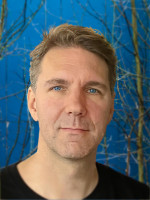You are required to read and agree to the below before accessing a full-text version of an article in the IDE article repository.
The full-text document you are about to access is subject to national and international copyright laws. In most cases (but not necessarily all) the consequence is that personal use is allowed given that the copyright owner is duly acknowledged and respected. All other use (typically) require an explicit permission (often in writing) by the copyright owner.
For the reports in this repository we specifically note that
- the use of articles under IEEE copyright is governed by the IEEE copyright policy (available at http://www.ieee.org/web/publications/rights/copyrightpolicy.html)
- the use of articles under ACM copyright is governed by the ACM copyright policy (available at http://www.acm.org/pubs/copyright_policy/)
ss - technical reports and other articles issued by Mälardalen University is free for personal use. For other use, the explicit consent of the authors is required
- in other cases, please contact the copyright owner for detailed information
By accepting I agree to acknowledge and respect the rights of the copyright owner of the document I am about to access.
If you are in doubt, feel free to contact webmaster@ide.mdh.se
Code agency for the enlightened citizen or the witless orc - about culture, code craft, and engineering
Type:
Start time:
End time:
Location:
Description
Today, layer upon layer of sophisticated technology carries the body of society and the world economy. But, the technology is hidden behind shiny touch screens of glass. Data are hidden in "clouds” under surveillance of powers profiteering and control your actions and behavior. (Systems almost exclusively created in the western United States.) Debaters speculate about half of all jobs will be lost in digitization. Technology evangelists seem to read Osborn and Frey article of halving future job as a manual. We need more engineers so that we can automate more. Our educational system largely based on a pipe of courses in an area toward a degree leads to stupidity. They currently builders of technology still fit into a norm: a young man. He has attended a curriculum largely devoid of any other knowledge than that based on the objectivistic, hypothetical-deductive, and positivistic. This single mindedness and lack of enlightenment combined with technical skill reminiscent of Tolkien's witless Orc who willingly subjected himself to and carried out his masters will.
If we believe in a social and ecological sustainable development, and if we also believe that knowledge is constructed and that we can construct knowledge, do we not need to reevaluate the knowledge and who has access to it? Here, I believe in culture and the arts. Ideas take hold through culture and the arts, and can be carried to broader groups, and thus provide access to technology. By breaking, questioning, criticizing, and portraying phenomena in our milieu, with technology as material, we can open technology for various epistemological positions and ontological views. Europe has lost the initiative in the shiny information technology. But as a counterweight, today we have a clear cultural perspective in the development of technology. Raspberry Pi from the UK and the Arduino from Italy have become key materials in a growing (global) digital culture. These are pliable raw materials designed for people with limited knowledge, yet they allow virtuosity. Through creation, I hope that the enlightened citizen can design and make the knowledge to hers to fully participate in society, and to dispute technology and its design.



